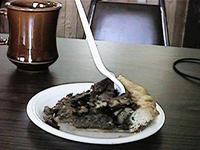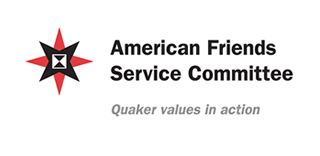I was blind, but now I see. . .
From ministry delivered in Meeting for Worship on 10/23/2005:
We all know the Indian fable of the blind men and the elephant, where a group of blind men are led to an elephant and each grabs one part of the animal – leg, trunk, tail, body, ear, tusk – and then describes the elephant in terms of the part he is holding – an elephant is like a tree trunk, or like a snake, or rope, wall, banana leaf, spear. Then they argue with each other about it, each insisting on his own perception as the only true description of an elephant.
We smile at the silliness of the argument and usually describe the moral of the story as being about the importance of diverse points of view, no one has all the answers, it’s important to be humble and open to new ideas, etc.
But behind those obvious, superficial lessons, there are two more profound lessons found in the two premises of the story.
First, the only reason that the men disagreed and argued with each other was that they were blind. If they could see they would have each realized in an instant that the elephant had many aspects and characteristics at the same time. The lesson, then, if that if you want to know what an elephant is like, wake up, open your eyes, and see for yourself.
The second, and perhaps more important lesson is that there is indeed an elephant! The story only makes sense if the men are feeling & describing something that actually exists (i.e., they aren’t making it up), and that it is the same thing.
So it is when we stumble in our blindness into an encounter of the Living God. Our first perception may be of a particular characteristic or attribute of God: creator, liberator, comforter, judge, lawgiver, mother, father, shepherd, still small voice, pillar of fire, burning bush, etc.
If we remain spiritually blind, our perception of God will be limited to the aspect we immediately encounter. Somehow we know that we aren't seeing the whole thing, but if we are blind the best we can do would be to listen to and “believe” in the validity of the others' experience, incorporating their second-hand description into our first-hand knowledge and experience. The result would be an "idea" of "God" that would be subjective, ideosyncratic, and tentative. We will never be able to testify with power and confidence about God and what God has done for us; we'd always have to qualify our testimony on the reliability of the other witnesses. (How could the blind guy feeling the leg ever accept without reservation that the animal he was feeling had any resemblance whatsoever to a rope or a banana leaf?)
But if we learn how to see, our knowledge will be immediate, personal, comprehensive, and authentic. It would be a living knowledge of The Living God upon which we could stake our lives. And not alone: we'd share the knowledge with all the others who also see (i.e., the Church).
There is one important difference, though. The elephant is indifferent towards her perceivers; she doesn’t have the power, or desire, to cure them of their blindness. So they are stuck in their prediciment and must do the best they can.
Not so with the Living God.







